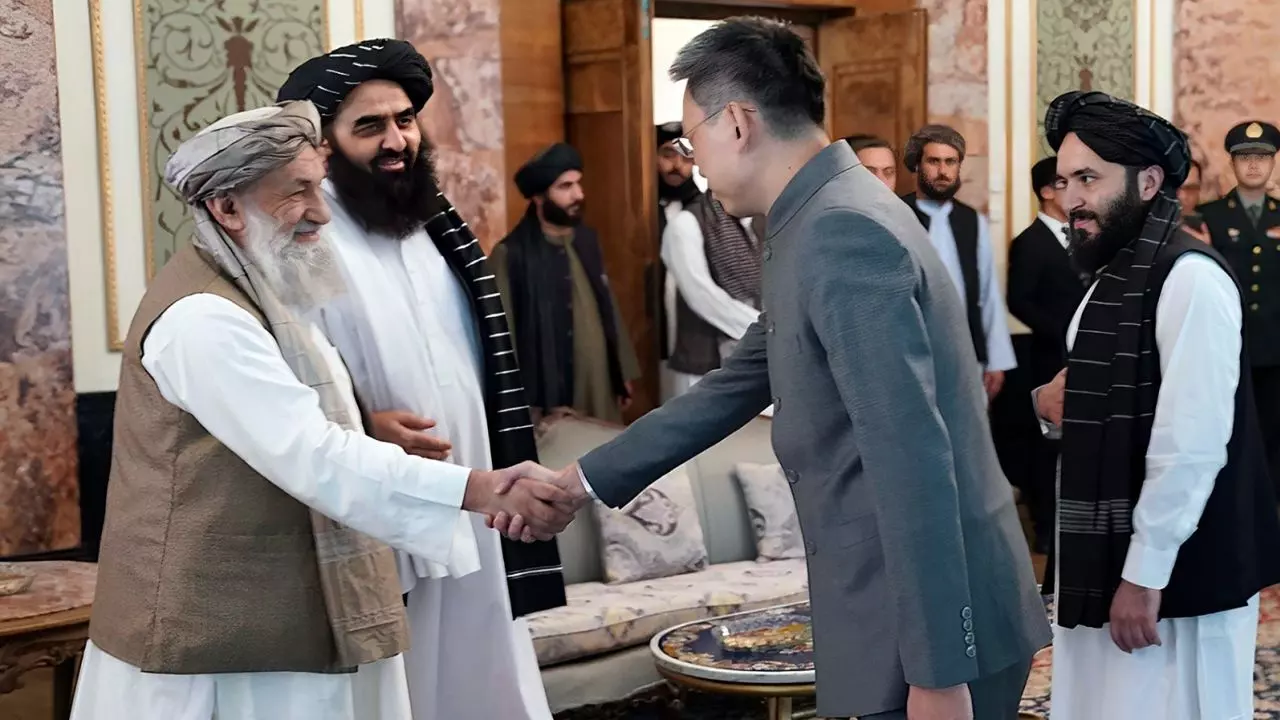Shifting alliances
Afghanistan’s emerging nexus with China and its souring ties with Pakistan over border issues have thwarted Islamabad’s plans to leverage the Taliban government to its advantage

There was an extraordinary euphoria soon after the American and allied troops withdrew from Afghanistan on August 15, 2021. This was precisely because Pakistan believed that, geopolitically, it would be able to woo and control Afghanistan, further reinforcing its ties based on a common religious affinity. However, those hopes were short-lived and soon evaporated.
Against this backdrop, China continues to show its keen interest in Afghanistan, possibly due to its economic interests in the country and its desire to access the mineral wealth in the Oxus River Basin. China also wants to keep Afghanistan in good humour so that the Taliban regime can be conveniently used to prevail upon the Uighur Muslims in the Xinjiang province who are up in arms against the Chinese government due to the latter’s continued oppressive policies against the Muslim minority. This policy appears to be working well for China, as the staunch Taliban political leadership in Afghanistan refrains from criticising China for its high-handedness against Chinese Muslims.
Notably, on September 13, the Taliban welcomed China's new Ambassador to Afghanistan, Zhao Sheng, with Foreign Minister Amir Khan Muttaqi describing the Ambassador's nomination as a significant step with a significant message. It marked the first time since the Taliban takeover in 2021 that an Ambassador to Kabul received such lavish protocol. Afghan officials stated that the new envoy's arrival signalled an invitation to other nations to establish relations with the Taliban-led government.
The Taliban has not received official recognition from any foreign government, and Beijing did not indicate whether this recent appointment signalled any broader step towards formal recognition of the Taliban. Several Taliban leaders remain under sanctions, and the country's seat at the United Nations is still held by the former Western-backed government led by former President Ashraf Ghani.
Furthermore, a statement from China's Embassy in Afghanistan issued on September 13 urged the international community to maintain dialogue with Afghanistan, encourage the country to establish an inclusive political framework, adopt moderate policies, combat terrorism, and develop friendly external relations. China and Taliban officials have been open about their desire for closer ties, especially in the commercial sphere.
The appointment of the Chinese Ambassador also signals to other countries to come forward and interact with the Islamic Emirate, according to the Taliban administration. According to the Taliban's Chief spokesperson, their aim is to establish good relations to solve all the problems afflicting their country.
In a development related to Pakistan, Afghan and Pakistani officials have recently traded blame over the closure of a key border crossing after incidents of cross-border firing. Earlier, on September 12, the Taliban rejected Pakistan government’s allegations that they were to blame for the closure of the Torkham border crossing, which serves as the main point of transit for travellers and goods between Pakistan and Afghanistan. Hundreds of trucks carrying essential goods have since been stranded on both sides. A spokesperson from the Foreign Ministry in Islamabad, speaking on September 11, accused the Taliban of constructing unlawful structures and engaging in indiscriminate and unprovoked firing. The spokesperson, Mumtaz Zahra Baloch, also repeated claims that Afghanistan allows its soil to be used for "terror" attacks on Pakistan. It may be recalled that both countries have been accusing each other for months over border issues and armed attacks that Islamabad asserts originate from Afghan soil.
It should also be noted that Pakistan was one of only three nations to grant formal recognition to the previous Taliban government from 1996 to 2001. However, like all other countries, Pakistan has withheld recognition of the current Taliban administration. Diplomatic ties have also deteriorated due to frequent flare-ups along their border, including sporadic gunfights and closures of crossings. Islamabad also complains that Kabul is failing to secure its frontier – a colonial-era demarcation that every Afghan government has disputed – allowing armed group fighters to cross and carry out attacks on Pakistan's soil. There has been a significant increase in attacks, almost 80 per cent in the first half of 2023 compared to last year, according to the Pakistan Institute for Conflict and Security Studies. Pakistan-Afghanistan relations continue to deteriorate with no signs of repair.
The writer is a retired IPS officer, Adviser NatStrat, and a former National Security Advisor in Mauritius. Views expressed are personal



